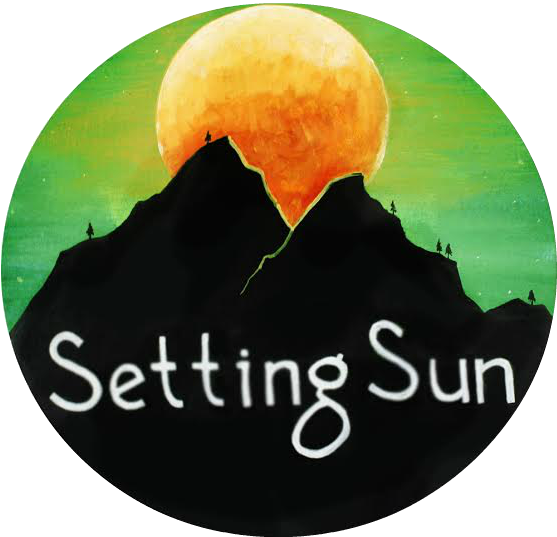Spiritual Orphanhood: How Being Disconnected From Nature Stunts Human Development
I recently listened to an episode of Shrink Rap Radio exploring archetypes, the soul’s journey, and the concept of the archetypal orphan in the world. The radio host, Dr. Dave, interviews the Jungian analyst, Erel Shalit about his book, The Cycle of Life.
The orphan, meaning, the one who is abandoned by their parents or lost their parents because of death, illness, or even neglect. This archetype can also be viewed as a cycle throughout human development – when one is abandoned and alone in the world.
Is the archetypal image of the orphan universal and is it universal throughout life-stages? This answer may vary depending how one views the archetype of the orphan. If it is view literally, as an abandoned child, it may not be universal because not everyone experiences this type of abandonment in life. If viewed archetypally and symbolically, it seems appropriate to say that it is a universal feeling since abandonment is a common theme throughout life-stages as Shalit states in the podcast (Van Nuys, 2015). If we view the orphan through a spiritual viewpoint, again, this seems like an appropriate assessment to say that many people are suffering because they do not realize they are orphans of the world – spiritually, psychologically, and physically displaced with a lack of cultural narratives that provide a root for what it means to be “home” in the world.
I will touch base on the notion of this spiritual orphan. I do not have an accurate source for this since my books are scattered and I could not find it online anywhere, but this concept comes from the author, Martin Prechtel. The concept is either in one of his books or I heard it at a lecture he gave years back. Prechtel speaks a lot of the importance of expressing grief, praising life, and mourning those who have passed on. He often speaks about “ghosts” as uninitiated ancestors who have passed on and continue to cause problems (Jenson, 2001). The way that I see the term “ghost” as Prechtel speaks of is another way to suggest that ancestral traumas continue getting passed down throughout generations. Dan Siegel (2015) emphasizes the important role of epigenesis, and how experience can change the expression of genes. The way that I see Prechtel speak about the spiritual forces, the ghosts, is not too different from trauma being passed down through epigenetics.
Prechtel goes on to say how these traumas and these “ghosts” chase individuals.
That’s why all the great migrations of the past several thousand years have been to the west: because people are running away from the ghosts. The people stop and try to live in a new place for a while, but the ghosts always catch up with them and create enormous wars and pain and problems, which feed the hungry hordes of ghosts. Then the people continue on, always moving, never truly at home. Now we have an entire culture based on our fleeing or being devoured by ghosts. (Jensen, 2001, p. 1)
Now onto the part that I do not fully have citations for. Prechtel speaks about how since much of the Western culture and much of the world is running from these traumas or not integrating/processing them, this makes us all orphans to the world. We have all forgotten where we have come from, and that there might be a much bigger force or parent (The Earth) in the world. Just like the orphan, we never feel at home in the world, and feel abandoned by the forces of nature and a higher power/the parents of this world. We are all simply orphans of the world trying to find home. Prechtel also touches on the importance of rites of passages in many cultures and how these pivotal events help the transition of life-stages.
Ralph Metzner (1995), an ecopsychologist, diagnoses human culture with a metaphorical diagnosis of “autism” and “amnesia.” The autism diagnosis relating to not being able to feel, sense, or communicate with the Earth or the parent. The amnesia is due to forgetting that the earth is alive and forgetting how to live in harmony with the it (Metzner, 1995). These metaphoric diagnoses can also be seen as the archetype of the orphan; feeling abandoned, alone, and afraid in the world, and not being able to recognize their parents. Even when the child feels safe or has a new home, the child does not completely feel safe because of his or her previous experience. As Shalit (2011) mentions, “the archetypal image becomes frozen in the psyche of the traumatized person” (p. 3). Dan Siegel (2015) also mentions that memories of the past can play a role in how one lives in the present and predicts future events.
I think that Siegel (2015) pulls this all together with his theory of epigenetics, memory, and trauma. The one piece that I appreciate about Siegel is his emphasis on relationship. It seems that relationship is a huge part of life and how we are in relationship with the world and in our social lives can inform our inner experience. An example of this can be highlighted again by Metzner. Metzner (1995) critiques Erik Erikson’s stages of developments and mentions that without the proper infant-caregiver relationship, basic trust and mistrust become off. He goes on to state that if this trust-mistrust is off, as with the orphan, then the child begins to lash out again nature (the parent) and feel as if the nature has deceived and failed them (Metzner, 1995). This lashing out and feeling of abandonment continues throughout the life-stages.
The question is, how do we move past this stage of orphanhood? Is there a way to do so? Or will we forever be stuck in a cycle of childhood?
It seems that our connection with the earth is important, and we need to rekindle that flame if we wish to move forward in our human development. It seems that this current political climate that we are facing in the United States and throughout the world is in relation to the disconnection of the earth and nature.
References:
Siegel, D. J. (2015). The developing mind, Second edition: How relationships and the brain interact to shape who we are. New York, NY, United States: Guilford Publications.
Jensen, D. (2001). Saving the indigenous soul: An interview with Martin Prechtel. Retrieved January 27, 2017, from The Sun Magazine, http://thesunmagazine.org/issues/304/saving_the_indigenous_soul?page=1
Metzner, Ralph. (1995). The psychopathology of the human-nature relationship. Roszak, T., Gomes, M., & Kanner, A. (Eds.), Ecopsychology: restoring the Earth and healing the mind (pp.55-67). Berkley, Los Angeles, CA: Sierra Club Books.
Shalit, E. (2011). The cycle of life: Themes and tales of the journey. United States: Fisher King Press.
Van Nuys, D. (2015 August, 27). Shrink rap radio. Retrieved from http://shrinkrapradio.com/470-the-cycle-of-life-with-israeli-jungian-analyst-erel-shalit/
Buy these books on Amazon through out affiliate links!













